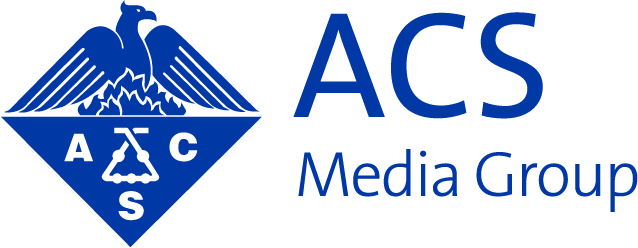Science marketing is evolving as advances in marketing technology create new opportunities to interact with a target audience. Traditional techniques for lead generation remain crucial, but there are also underused, unorthodox tactics that can expose your brand to important conversations, wherever they are happening.
These five science marketing tactics can keep your brand in front of your audience. Do you agree? Add your suggestions in the comments, and be sure to let us know!
1) “Facebook for Scientists” – with tools like ResearchGate
“Facebook for scientists” is not a new idea, but the social platform ResearchGate is a networking site that seems to be pulling it off. A 2014 report by Nature indicated that 88 percent of scientists had heard of ResearchGate and nearly 50 percent visited the site regularly. Despite its professional nature and prevalence, the platform remains underused by science marketers.
ResearchGate is different from other social networks because it requires an academic email address or proof of publication to register for an account. Marketers themselves cannot join the site, so it has flown under the radar as a marketing tactic. However, encouraging company scientists to join and discuss their ideas allows companies to generate authentic thought leadership and brand awareness in a space that no other marketers can access. Your company also gets a front row seat to open discussions about industry pain points and perspectives, providing valuable feedback for future product or service design and promotion.
ResearchGate supports advertising in addition to industry discussion opportunities. Ads on the platform are unobtrusive and ideal for reaching scientists engaged in conversation with each other. Further, the platform offers contextual advertising that is targeted based on keywords and page visits.
2) Marketing Automation – with tools like HubSpot
Marketing automation is on the rise, but still has its pain points. Salesforce estimates that marketing automation had some of the highest adoption rates of any new marketing technology in 2015. Despite this, overall usage remains low in the B2B science realm. The health and pharmaceutical industry does have comparatively high adoption rates, but companies are likely leaving powerful marketing tools on the table; only 38% of all organizations using marketing automation have embraced the advanced tactics it allows.
Marketing automation tools like HubSpot allow science marketers to track, coordinate and personalize their content for each individual customer. The technology spans communication channels, collecting data and automating many time-consuming and repetitive tasks. Although it can take some time to train users and establish processes, the level of detail enabled by marketing automation makes it more than worthwhile. The technology is a particularly valuable tool for inbound marketing and worth considering for any science marketing team.
3) Remarketing – with tools like Google
Remarketing reaches people that have already visited your website or content, showing them ads related to your product, service, or company. The most common forms of remarketing begin by placing a cookie in a reader’s browser. The cookie informs other websites or ad services to show particular ads depending on which pages on your site the reader visited. Marketing automation tools, discussed above, can greatly aid in the remarketing process, but the Google Display Network provides unparalleled access to your audience.
Remarketing through Google is available for traditional web ads or for search campaigns, and can boost your sales by making sure you stay top of mind for potential customers. Search remarketing, for example, allows you to rank for broader keywords; “genome sequencing equipment” might ordinarily be hard to rank for, but targeting the ad to people that have visited your website can allow your company to reach the top of the page.
4) Social platforms – with tools like Reddit
Dubbed “the front page of the internet,” Reddit boasts 234 million unique visitors and 8 billion pageviews a month. Of course, not all of these visitors are scientists, but Reddit offers two opportunities that allow you to reach your target audience: ads and AMAs.
Reddit advertising can be targeted to specific subreddits (communities of people that share common interests, such as science or biology). Ads appear unobtrusively at the top of each page. As redditors like to say, there’s a subreddit for everything, and doing a quick search for subreddits related to your scientific specialty will likely return results.
Reddit ads are a great way to use advertising where communities thrive, but be cautious. Redditors like discussion, but they do not take kindly to excessive marketing. It’s imperative for your advertising to match the tone of the platform.
Reddit Ask Me Anything (AMA) forums are popular educational sessions that can be a golden opportunity for thought leadership and brand awareness. The concept of an AMA is simple: an interesting and highly-experienced person hosts a real-time Q&A session, responding to a variety of questions posted by Reddit users. There are large, dedicated subreddits – like /r/IAmA for AMAs of all types – but you can also do AMAs in smaller, targeted communities, like science. Regardless of your choice, AMAs are free, and can offer truly one-of-a-kind engagement and thought leadership in your space.
5) Live streaming – with tools like Periscope
Launched in March of 2015, Periscope is the newest tactic on this list. Periscope is a smartphone app that allows users to live-stream video from anywhere, representing an opportunity for science marketers to take their event marketing to the next level. Companies can use the app – named the app of the year by Apple – to livestream their tradeshow experience or show their perspective at major conferences – or even your own lab!
Twitter was exploding during the 2015 International Summit on Human Gene Editing; imagine the additional discussion that a live stream could have caused. Periscope delivers the potential for informed, real-time conversation, and in our opinion, should be taken seriously by science marketers. For one, it’s not another social network you have to build from scratch: the app works seamlessly through twitter. Second, science-focused products are technical. Use live video to add personality, and visualize your amazing science in real-time.


















